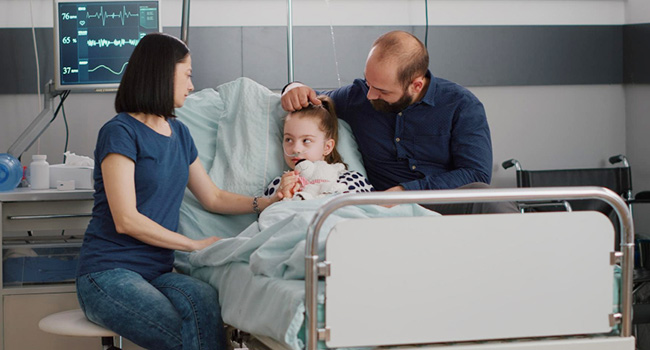
Respiratory issues in children, especially when requiring hospitalization, can be concerning for families and caregivers. A clinical trial conducted across multiple hospitals in Australia and New Zealand aimed to explore the effectiveness of nasal high-flow oxygen therapy compared to standard oxygen therapy in children aged 1 to 4 years with acute hypoxemic respiratory failure compared to standard oxygen therapy.
The trial involved 1567 children facing acute breathing difficulties that warranted hospital admission. Researchers sought to evaluate if using high-flow oxygen therapy early on could help shorten hospital stays for these children, similar to its success in younger infants with respiratory conditions like bronchiolitis and low oxygen levels.
Results
The findings of this trial revealed unexpected results. Despite the known success of high-flow oxygen therapy in younger infants, its use in children aged 1 to 4 years with acute hypoxemic respiratory failure did not significantly reduce the length of their hospital stays when compared to standard oxygen therapy.
-
Hospital Stay Duration: Children receiving nasal high-flow oxygen therapy remained in the hospital for a median of 1.77 days, slightly longer than those receiving standard oxygen therapy, who stayed for a median of 1.50 days. This difference in duration was found to be statistically significant.
-
Secondary Outcomes: Several secondary outcomes were evaluated, and while some did not show substantial differences between the two groups, there were noticeable variations in the duration of oxygen therapy and admissions to the intensive care unit.
Implications
Contrary to expectations, the trial results indicated that high-flow oxygen therapy did not notably decrease the length of hospital stays for children aged 1 to 4 years dealing with acute hypoxemic respiratory failure. Additionally, children receiving high-flow oxygen therapy had a slightly longer duration of oxygen therapy, and there were more admissions to the intensive care unit in this group compared to those on standard oxygen therapy.
Though the trial results might come as a surprise, they provide essential insights into the effectiveness of nasal high-flow oxygen therapy in older children facing acute respiratory challenges. This research emphasizes the need to carefully assess and tailor treatment approaches for specific age groups and respiratory conditions.
Conclusion
Despite initial expectations, the clinical trial demonstrated that using nasal high-flow oxygen therapy as the primary treatment for children aged 1 to 4 years with acute hypoxemic respiratory failure did not significantly reduce their hospital stays compared to standard oxygen therapy.
These findings, although unexpected, contribute significantly to our understanding of respiratory therapies in children. They underscore the importance of further research and personalized approaches to effectively manage various respiratory conditions in different age groups.
Parents and healthcare providers must stay updated on evolving research and treatment options available for pediatric respiratory illnesses. While nasal high-flow oxygen therapy remains valuable in specific situations, its impact on certain age groups and respiratory conditions may differ, as observed in this trial.
__________

